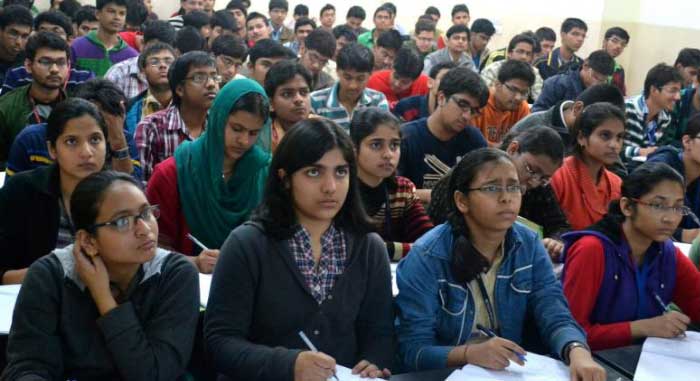
Text: The Cabinet Committee on Economic Affairs chaired by the Prime Minister on December 23 has approved a budget increase in the Post Matric Scholarship Scheme which will now benefit more than four crore students in the upcoming five years assisting them in their pursuit of higher education. This scheme allows students to pursue any post-matric course starting from Class 11 and onwards.
The Cabinet has approved a total investment of Rs. 59,048 crores of which the Central Government would spend Rs. 35,534 crores (60%) and the remaining balance would be spent by the State Governments. This replaces the existing “committed liability” system and brings greater involvement of the Central Government in this crucial scheme.
As the Centre will pay 60% of the scholarship amount while the states would bear 40% of the cost, the Union Social Justice Minister Thaawar Chand Gehlot told the media, “It is a consequential and transformatory change which will help uplift students among the poorest Scheduled Caste families.” The Centre also decided that the scheme would be made simpler and funds would be put directly into students’ bank accounts.
Under the current scheme, which is now set to be replaced, the Centre provided only funds above the committed liability, which was only 11% of funding since 2017, prompting many states to discontinue it. The issue was escalated to the Prime Minister’s Office and was discussed at a meeting with him, who finally decided on this major outreach programme.
Today’s Cabinet decision on post-matric scholarship will ensure greater educational access to youngsters belonging to SC communities. Ensuring top quality and affordable education to our youth is an important focus area for our Government. https://t.co/JHBBhEZOM8
— Narendra Modi (@narendramodi) December 23, 2020
The Union Government has also decided that a campaign will be launched to enrol the students, from the poorest households passing the 10th standard, in the higher education courses of their choice. It is estimated that 1.36 crore such poorest students, who are currently not continuing their education beyond the 10th grade would be brought into the higher education system in the next 5 years.
It has also been decided that the scheme will be run on an online platform with robust cyber security measures that would assure “transparency, accountability, efficiency, and timely delivery of the assistance without any delays.” The States have also been directed to undertake fool-proof verification of the eligibility, caste status, Aadhar identification and bank account details on the online portal.
In order to give students a big push, the government aims to increase assistance more than five times to be around Rs. 6000 crores annually during 2020-21 to 2025-26 which was initially capped at Rs. 1100 crores annually during 2017-18 to 2019-20.
The ambitious scheme does intend to bring about changes in the educational structure for the underprivileged students but effective implementation and red tape remain a herculean task for the Government to overcome. Several students have complained about the National Overseas Scholarship Scheme (NOS) that provides financial assistance to the selected candidates for pursuing Master level courses and PhD abroad.
Young students fail to get the final award letter on time which subsequently leads them to defer the entire admission process. Some Dalit students have also suffered due to lack of communication from Government officials and unnecessary delay in verifying and processing their documents for the scholarship money. An official in the social justice and empowerment ministry, which awards the scholarship, acknowledged that for the past three years, only about 60 of the 100 expected beneficiaries had been receiving the final award in time to secure admission overseas.
![]()
Related:
Delay in scholarships leave Dalit students in hot water
Jharkhand Scholarship Scam: ADM calls for phone records for investigation